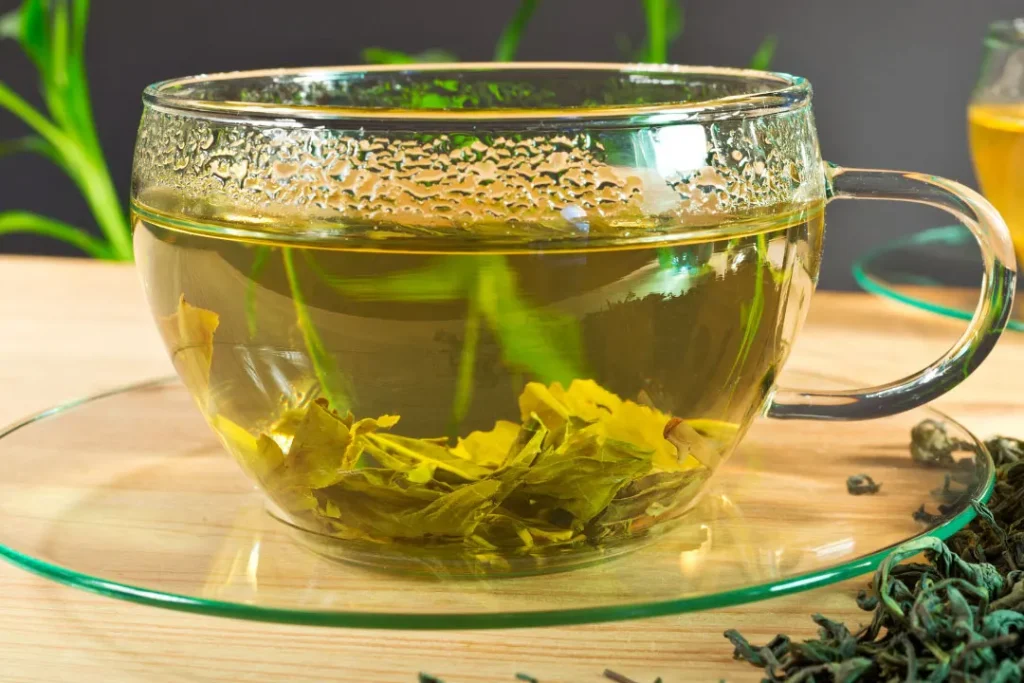Chinese mallow, formally named malva verticillata , is an herbaceous plant often used in traditional medicine, particularly in Asia. It is known for its therapeutic effectiveness in treating many ailments. This in-depth analysis explores the properties of Chinese mallow, its health advantages, ideal dose, possible side effects, drug interactions, and how you can use it safely..
You May Also Like:
5 Great Nootropic Herbs for Focus and Mental Clarity
5 Great Nootropic Herbs for Energy, Focus, and Productivity
Chinese Mallow: Benefits, Dosage, Side Effects, Drug Interactions, and Other Important Information is an original (NootropicsPlanet) article.
The Nature of Chinese Mallow
Chinese Mallow is a perennial plant member of the malvaceae family. It is distinguished by a strong, erect stem, alternately placed leaves, and tiny pale flowers. Its seeds, often known as “mallow seeds,” are valued for their therapeutic qualities.
The chemical makeup of Chinese mallow is responsible for its medicinal advantages. Polysaccharides, flavonoids, sterols, and phenolic acids are important constituents. These phytochemicals collaborate to provide a variety of health advantages.
Health Benefits of Chinese Mallow
Chinese mallow has gained popularity for its extensive medicinal potential, which include the following major health advantages:
- Diuretic and Detoxifying Effects: Chinese mallow has long been valued for its ability to induce urination and helping to remove waste from the body. It is helpful in detoxification treatments because of its purification properties.
- Anti-Inflammatory Qualities: Chinese mallow has anti-inflammatory qualities due to the presence of flavonoids and phenolic acids. These substances reduce the synthesis of inflammatory markers, which help reduce symptoms in diseases like gastritis and arthritis.
- Digestive Health: Chinese mallow is often used in the treating digestive issues. Its polysaccharides encourage bowel movement, which alleviates constipation. In addition, it has a calming impact on the digestive system, which can help treat diseases like gastritis and peptic ulcers.
- Cardiovascular Health: Chinese mallow contains flavonoids and sterols that can help control cholesterol levels. They prevent the intestines from absorbing cholesterol and encourage its elimination, which can benefit your cardiovascular health.

Chemistry of Chinese Mallow
Chinese mallow has an intricate chemical make-up that adds to its range of medicinal advantages. Polysaccharides, flavonoids, sterols, and phenolic acids are important constituents.
Complex carbohydrates called polysaccharides have been linked to many health advantages. These elements contribute to the diuretic properties, bowel movement stimulation, and detoxifying properties of Chinese mallow.
Flavonoids are well known for having strong anti-inflammatory and antioxidant effects. They function by scavenging dangerous toxins and obstructing inflammatory pathways, guarding cells from injury and reducing inflammation.
Chinese mallow contains sterols that help to keep your heart healthy. They control the metabolism of cholesterol, preventing its absorption in your stomach, and encourage its elimination.
Phenolic acids are another class of effective antioxidants. These acids increase the ability for Chinese mallow to reduce inflammation. These substances reduce the synthesis of pro-inflammatory mediators, alleviating inflammation-related diseases.

The Purpose of Chinese Mallow
The natural substances in Chinese mallow are what give it its health advantages. The polysaccharides boost urine output and encourage the evacuation of waste in your body, causing diuretic and detoxifying effects. The flavonoids and phenolic acids, which prevent the generation of pro-inflammatory cytokines, are responsible for the anti-inflammatory effects. Flavonoids and phenolic acids have a calming impact on the gastrointestinal system, while polysaccharides have a laxative effect by promoting bowel movement. The flavonoids and sterols decrease cholesterol absorption and enhance its excretion. They are responsible for the cardiovascular benefits.
Chinese mallow is a flexible medicinal herb that offers a wide range of health advantages. It is a beneficial dietary supplement due to its diuretic, anti-inflammatory, digestive properties, and cardiovascular support. However, the secret to maximizing these advantages and reducing any negative consequences is daily use. The therapeutic potential of Chinese mallow, including its ideal dose, possible interactions, and mode of action, can be better understood through further scientific study.
Optimal Dosage of Chinese Mallow
Depending on how you use the supplement, (tea, extract, or pill), yourhealth, the particular ailment being treated, and the dose of Chinese mallow may change. Decoction is traditionally made with 9–15 grams of dry herb each day. A standard dose has not yet been established, nevertheless, since there haven’t been many clinical studies. If using a commercial preparation, we advise you to follow the manufacturer’s recommendations or get medical assistance.

Side Effects of Chinese Mallow
Although Chinese Mallow is often well accepted, it is possible for you to expereince some negative side effects. These include a moderate gastrointestinal upset, especially if you eat it in large quantities. Keep in mind that, if not carefully controlled, the diuretic effects of the plant may disrupt your body’s electrolyte and fluid balance. Chinese mallow should not be used by anybody who has a known hypersensitivity to it or any of its ingredients.
Potential Substance Interactions
Scientific research does not specifically list any interactions between Chinese allow and other chemicals as of now. However, caution should be taken when using Chinese mallow with diuretics or non-steroidal anti-inflammatory pharmaceuticals (NSAIDs) owing to its diuretic and anti-inflammatory properties. Before beginning any new supplement, it is essential for you to speak with your healthcare professional, especially if you are currently on medicine.
Best Use of Chinese Mallow
The therapeutic properties heavily influence the best way to use Chinese mallow. Here are some basic recommendations for using it responsibly:
- Diuretic and Detoxification: Chinese mallow is commonly used as a tea made from the dried plant. This method fits in with established customs.
- Anti-Inflammatory: Chinese mallow has anti-inflammatory properties that can be used to treat illnesses including gastritis and arthritis. Ideally, you should speak to your doctor before deciding on the form and dose.
- Digestive Health: Chinese mallow can ease stomach pain and treat constipation. Once again, the dose and form (tea, extract, pill) should be determined based on your health and symptoms.
- Cardiovascular Health: Regular and consistent usage is essential if you want to get the full benefits of Chinese mallow in your cardiovascular system. The dose should be determined by your cholesterol levels and general cardiovascular risk, whether you take it as a tea or food supplement.

Chinese Mallow:
Conclusion
Ideally, Chinese mallow should only be utilized under expert direction. Although it has been used safely for many years, it is nevertheless vital to take into account your specific health situation, potential side effects, and any drug combinations. The secret to maximizing the benefits of Chinese mallow and reducing hazards is by using it carefully and daily. To understand the wide therapeutic potential of Chinese mallow completely, further study is required, especially in regards to the methods in which its active chemicals interact with physiological pathways.
References:
- Medicinal and Aromatic Plants of the World – Asia. Retrieved from: https://link.springer.com/book/10.1007/978-981-13-7248-3
- Herbal Medicine: Biomolecular and Clinical Aspects. Retrieved from: https://www.ncbi.nlm.nih.gov/books/NBK92756/
- The Role of Plant Sterols in Lowering Cholesterol. Retrieved from: https://www.ahajournals.org/doi/full/10.1161/CIR.0000000000000749
Important Note: The information contained in this article is for general informational purposes only, and should not be construed as health or medical advice, nor is it intended to diagnose, prevent, treat, or cure any disease or health condition. Before embarking on any diet, fitness regimen, or program of nutritional supplementation, it is advisable to consult your healthcare professional in order to determine its safety and probable efficacy in terms of your individual state of health.
Regarding Nutritional Supplements Or Other Non-Prescription Health Products: If any nutritional supplements or other non-prescription health products are mentioned in the foregoing article, any claims or statements made about them have not been evaluated by the U.S. Food and Drug Administration, and such nutritional supplements or other health products are not intended to diagnose, treat, cure, or prevent any disease.


